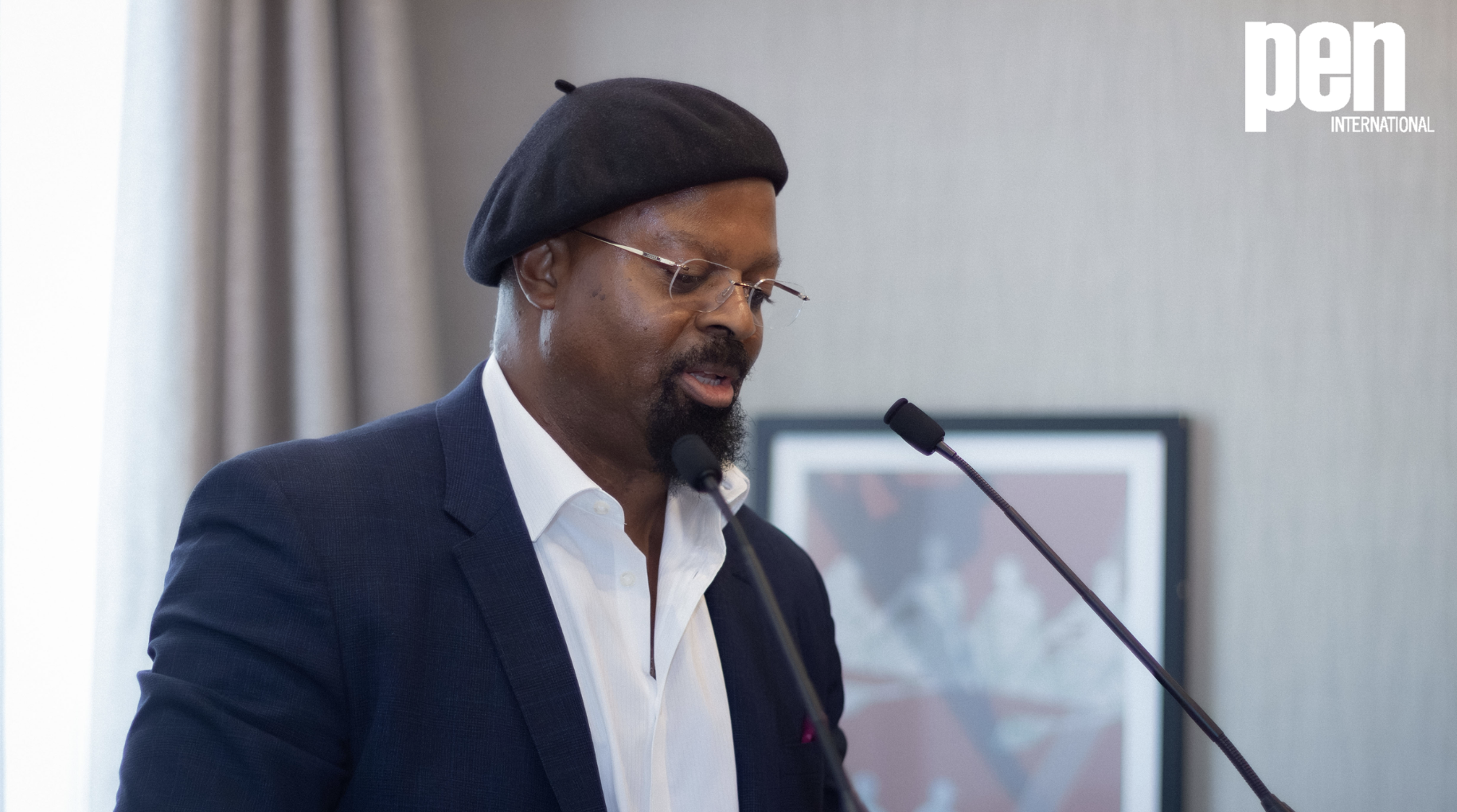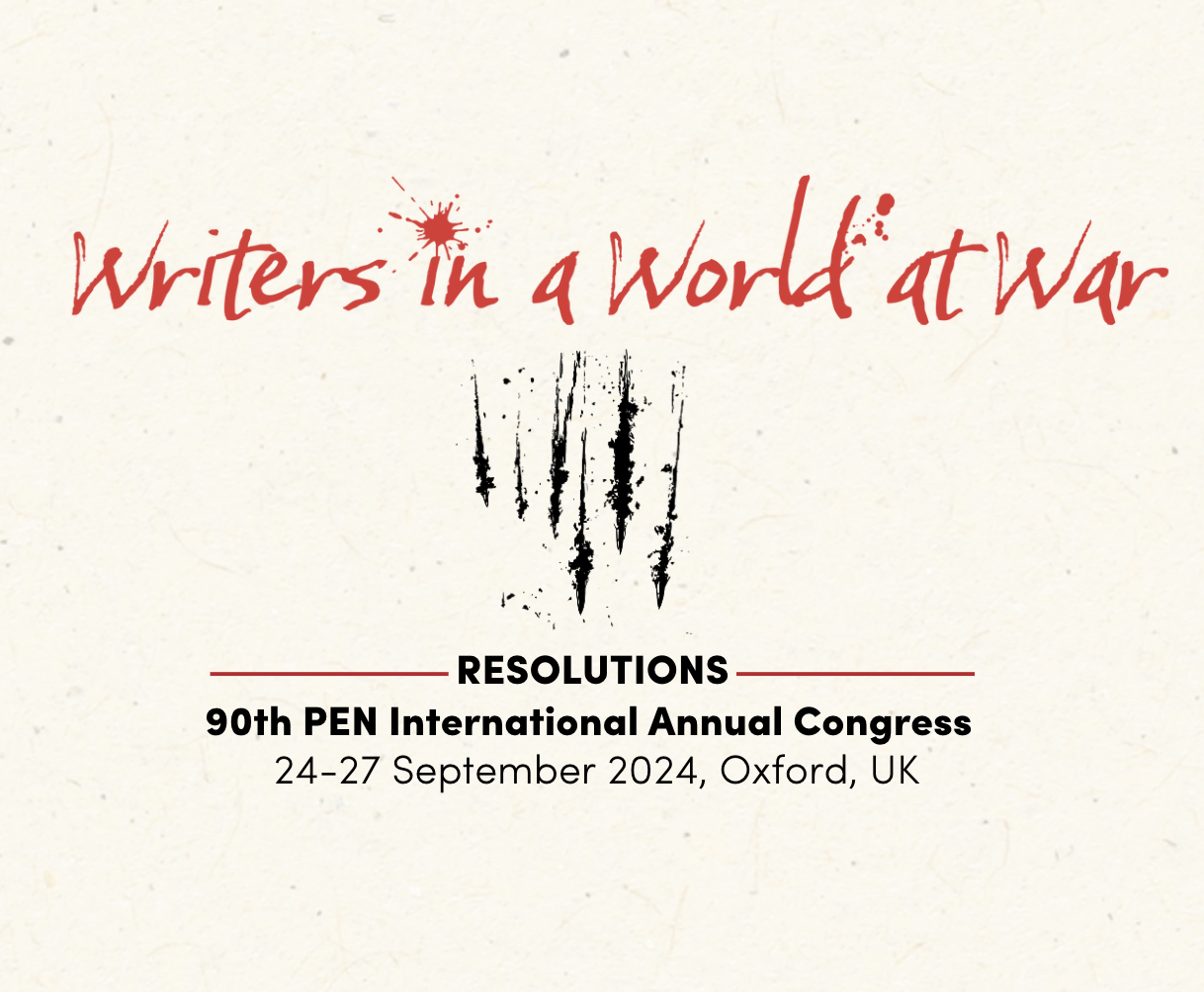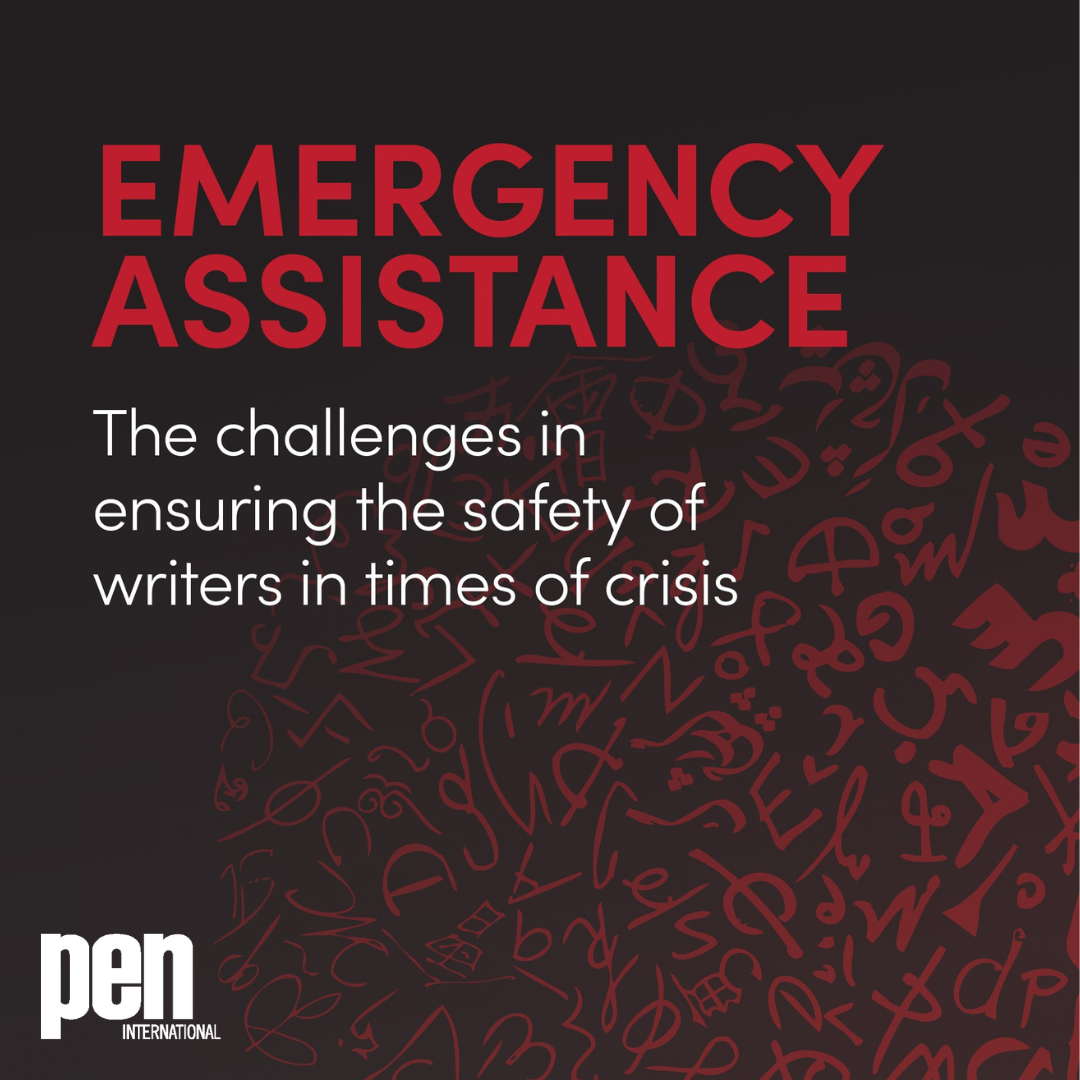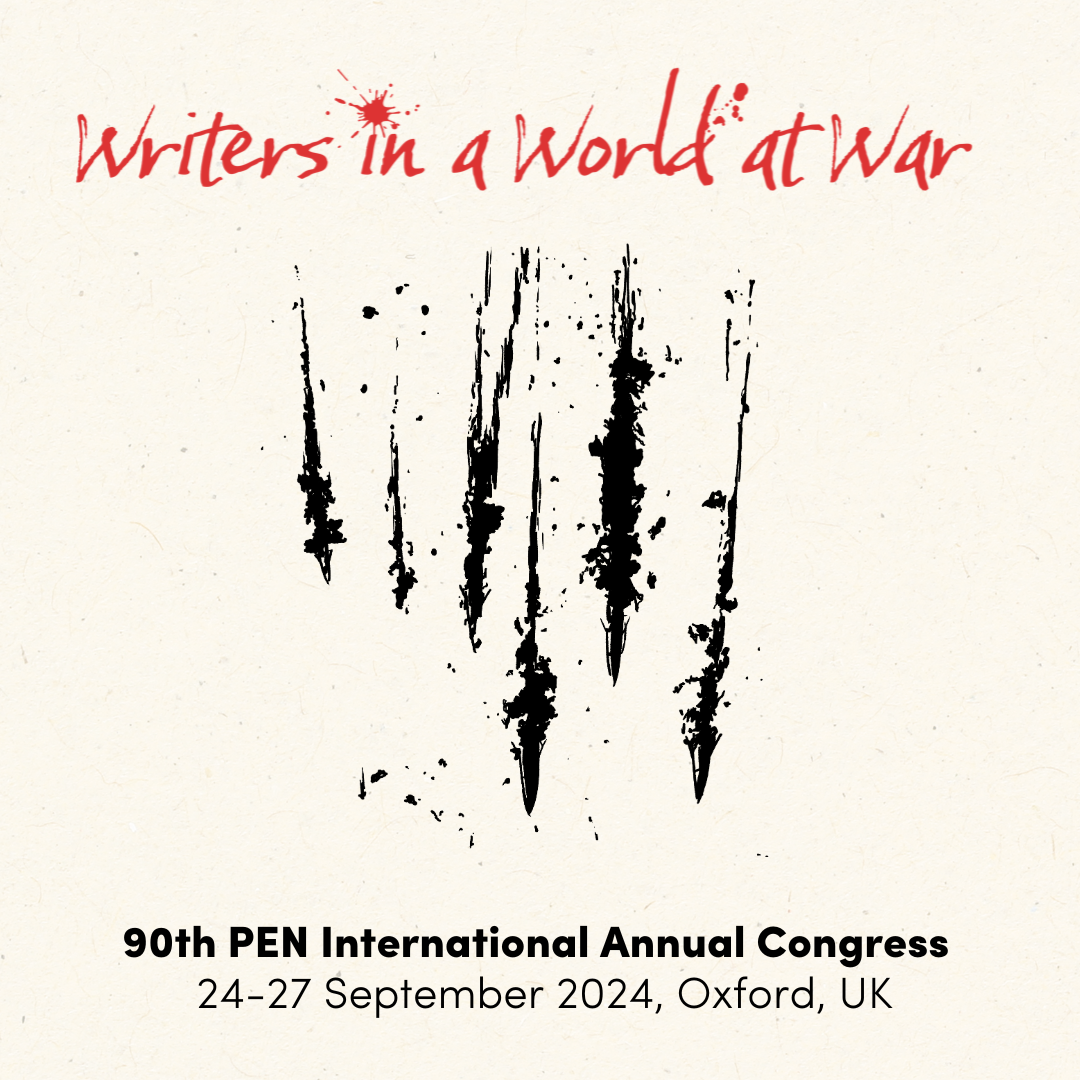25 September 2024:
Has there ever been a time when the world was at peace and PEN had nothing to do? Has there ever been a day in which there were no wars, no dictators, no writers in prison or having to flee into exile, a moment when PEN can put its feet up and contemplate a world without conflict? If anything the challenges that PEN has to deal with seem to be spiralling out of control.
The PEN charter is one of the great documents of the twentieth century. It is not only a founder document to a century of turbulence and unprecedented violence, it is also the template for all other documents that attempted to capture, in one place, the hope of contending with the chaos of the times. It was a charter of writers and poets and essayists. And it was far seeing in its vision and far reaching in its effects. It launched an extraordinary movement that has been able to make modest but important interventions in a world dominated by the motions of force and the realities of power. Is it proof that the pen is mightier than the sword? No. For the document did not stop wars and it did not always save writers. It did not turn back the tide of evil. But it showed one thing. It showed that the pen is as persistent as the sword. It showed that the pen can be more persuasive than the sword. It also showed that the pen can outlive the sword.
To measure the power of the pen and the power of the sword on one plane is an illogical act that can only lead to artistic despair. And despair is no choice for writers in a world that is fatally riven by factions and war.
Writers in a time of war ought to be alert and aware. For war is the suspension of the ethos of humanity. War is when the law of disorder, the law of brutality, reigns. In the name of the many reasons nations have for waging war the values of civilisation are set aside. But a time of war is when the writer finds it most necessary to hold on to those values and to hold nations to those values as well. For not only does civilisation perish in war, the civilising instinct becomes brutalised and people are made to accept all manner of barbarities as the norm. As writers we can never accept barbarities as the norm. War promotes moral cannibalism, where leaders make the devouring of their fellow human beings the only condition of their survival. Writers in a time of war become the ferocious protectors of a lost sanity. They become the moral custodians. They hold up a mirror to the monsters into which the age is turning the ordinary citizen, for the leaders first have to turn the citizens into monsters that accept an atrocious version of humanity before they themselves can plunge their nations into an orgy of blood and death.
This is not true of all wars. For there are wars of aggression, wars of conquest, and there are righteous wars. That is to say there are wars one must fight to prevent oneself from being enslaved, and there are wars fought to free ourselves from the intolerable yoke of oppression. The wars I am talking about are the unrighteous, conquest-driven, oppression-bringing variety.
The writer must become more fearless in a time of war but also more strategic. We have to find cunning ways to reflect the monstrosities of the times without becoming consumed by them. We must avoid becoming monsters ourselves. We must heed Nietzsche’s warning about the abyss that you peer into also peering back into you.
Therefore no one can say how a writer should best respond to the times. Some might opt to offer the benediction of calm and sanity, eschewing rage for the simpler qualities that help people to remember their humanity and to remind them of better times that will inevitably come. Others might choose to expose the viciousness of the times directly and uncompromisingly. Others might choose satire. Some might opt for the diaristic, to describe what happened day to day so that the people won’t forget.
But one thing writers can’t choose is to allow themselves to be defeated by the age. Writers become heroes by maintaining the sanity with which to dream. By maintaining the clarity with which to write well. Writers often become their own best artists in the very centre of the storm. No one has the right to ask this of writers, but it is what they must do.
The truth is that we are all raised by the quality of our ideals. And the ideals of PEN, concentrated in our charter, are a raft with which we can sail over turbulent seas. They are an armour in violent times. They are a panacea in times of madness. For they enshrine our best values and they remind us what civilisation means and why it is worth protecting when power structures torch its very foundations. To writers everywhere the charter is a lighthouse and a beacon of hope and solidarity.
Writers appear to operate alone, but they have to maintain a mental and spiritual sense of community else they write into a void. The writer’s condition is a paradoxical one: both in solitude and in community, both alone and yet writing for, dreaming for, unsuspected millions.
For the writer is the antidote to the dreams and distortions of power. The writer is set again the anti-human instincts of power which must create deserts in order to plant the grim city of their unbridled and uncontested reality.
The writer is the town crier whose bell warns the people that their houses are being destroyed from within
The writer is the truth teller possessed by the angel of conscience or the demon of rage
The writer brings dreams to the people whose sleep has been poisoned.
The writer is the child who reminds the people of the beauty of the slug, the magic of the millipede, and the poetry of a leaf of grass.
But sometimes in our need to save writers, to protect them, we forget that day by day the world is perishing and that there will be no world to write about if the world is dead.
It is time that PEN added the climate crisis to its charter. For the most primal thing that writers do is to reflect the world of nature. We can’t defend the writer if we ignore nature. What is there to gain if we save ourselves but lose our world? Writers who are persecuted for drawing attention to the devastation we are wrecking on nature are in special need of protecting. But the ethos of protecting our environment should now become a central part of PEN’s remit, otherwise we will be failing in the most solemn responsibility to be the defenders of the earth on which our destinies as a species rests.
The tree that gives us our paper, the dyes that give us our ink, the sky that contributes to our horizon, the air we breathe, the water we drink, the food we eat, all are aspects of our survival and sanity. You don’t need me to spout out depressing facts to remind you that humanity is in possibly the last chapter of its fate if we do not solve the climate crisis in the next twenty or thirty years.
But our role does not have to be doom-laden. We can draw attention to what we are doing to the earth by celebrating the majesty of nature. We can offer alternative visions of the future. We can wail about what is being wrought on our oceans, the destruction of fishes. But one thing we cannot do anymore is be indifferent. This is not a problem for other people to solve. We cannot sit by and watch the world perish while we only save writers from the clutches of war or the deep prison of yet another dictator terrified of truth. We have to find a way to do both.
Fortunately we do not regard the exalted PEN charter as a tablet of law brought from the mountaintop. It is a document written by men and women who are alive to the challenges of their times. It is an adaptable document that expands or can contract as the time requires and as our awareness allows.
For me PEN is fundamentally an organisation of great hope not only in the power of the pen, but in the power of human beings to build and shape acceptable realities. A tremendous pragmatism underlies its foundations. It is a pragmatism rooted in the relationship between human beings and society, between vision and reality. The true pragmatists are those who know that the world is where our dreams must be realised in, and that society is the ultimate home of our vision for a happier world.
(Copyrights: Ben Okri. October, 2024. All Rights Reserved.)
Photo credit: Roberk Brooks





